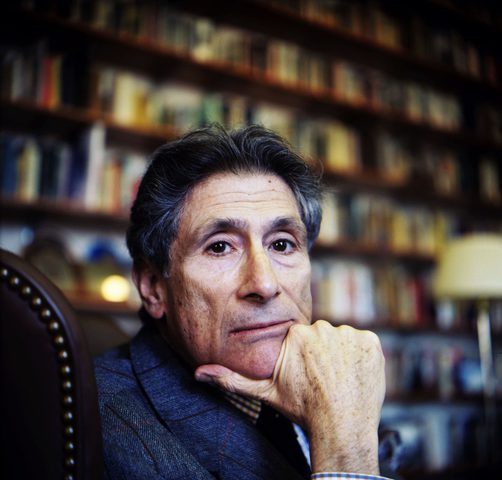Edward Said, the Palestinian-American intellectual and activist, died on September 25, 2003, at the age of 67. His death was a major loss for the Arab world, the West, and the world at large.
Said was born in Jerusalem in 1935 and studied in the United States, where he received a PhD in English literature from Harvard University. He taught comparative literature at Columbia University in New York City and was one of the leading thinkers in the field of post-colonial studies.
Said was best known for his book Orientalism, published in 1978, in which he offered a scathing critique of Western discourse about the East. Said argued that this discourse was characterized by racism and condescension, and that it contributed to the perpetuation of stereotypes about the East as a backward and uncivilized region.
Said was also a prominent political activist who championed the Palestinian cause and human rights in the Middle East. He was a leading supporter of the Palestinian resistance to Israeli occupation, and he was a vocal critic of what he called "the aggressive American policy" in the region.
Said's work had a profound impact on the discourse of the Arab world and the West. He was one of the leading thinkers of his generation, and he helped to shape the political and cultural consciousness of generations of intellectuals and academics.
Said's death elicited widespread reactions in the Arab world and the West. Many thinkers and academics expressed their sadness at the loss of this towering intellectual and cultural figure.
Former Palestinian Prime Minister Salam Fayyad said Said's death was "a great loss for the Palestinian people and the Arab world." Fayyad added that Said "was a courageous voice for Palestinian rights, and he helped to raise the Palestinian cause on the international stage."
U.S. Secretary of State Colin Powell, for his part, said Said "was a deep thinker and a gifted writer who contributed to our understanding of the Arab world." Powell added that Said "was an important voice for peace and understanding between East and West."
"Edward Said was one of the most important and influential intellectuals of our time. His work on Orientalism, post-colonialism, and the Palestinian cause has been essential to our understanding of the world we live in. He will be deeply missed." Noam Chomsky, American linguist and political activist wrote
Nelson Mandela, former President of South Africa "Edward Said was a true intellectual giant. His work on Orientalism and post-colonialism helped to change the way we think about the world. He was also a courageous and outspoken advocate for the Palestinian people. His death is a great loss to the world."
Said's death was also mourned by many writers, artists, and filmmakers who were influenced by his work. Salman Rushdie, J.M. Coetzee, and Toni Morrison were among those who paid tribute to Said.
Amartya Sen, Indian economist and Nobel laureate also wrote "Edward Said was a brilliant scholar and a passionate advocate for justice and human rights. His work has had a profound impact on our understanding of the world, and his legacy will continue to inspire us for many years to come."
In the years since his death, Said's work has continued to be read and studied by scholars and activists around the world. His legacy continues to inspire and challenge us to think critically about the world we live in.
Said left a vast intellectual and cultural legacy that continues to be felt today. He was one of the leading thinkers of the 20th century, and his work continues to inspire and challenge generations of thinkers and activists.






